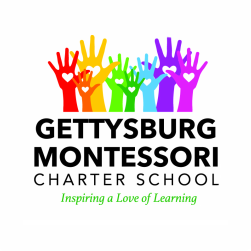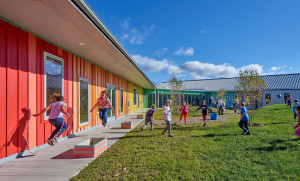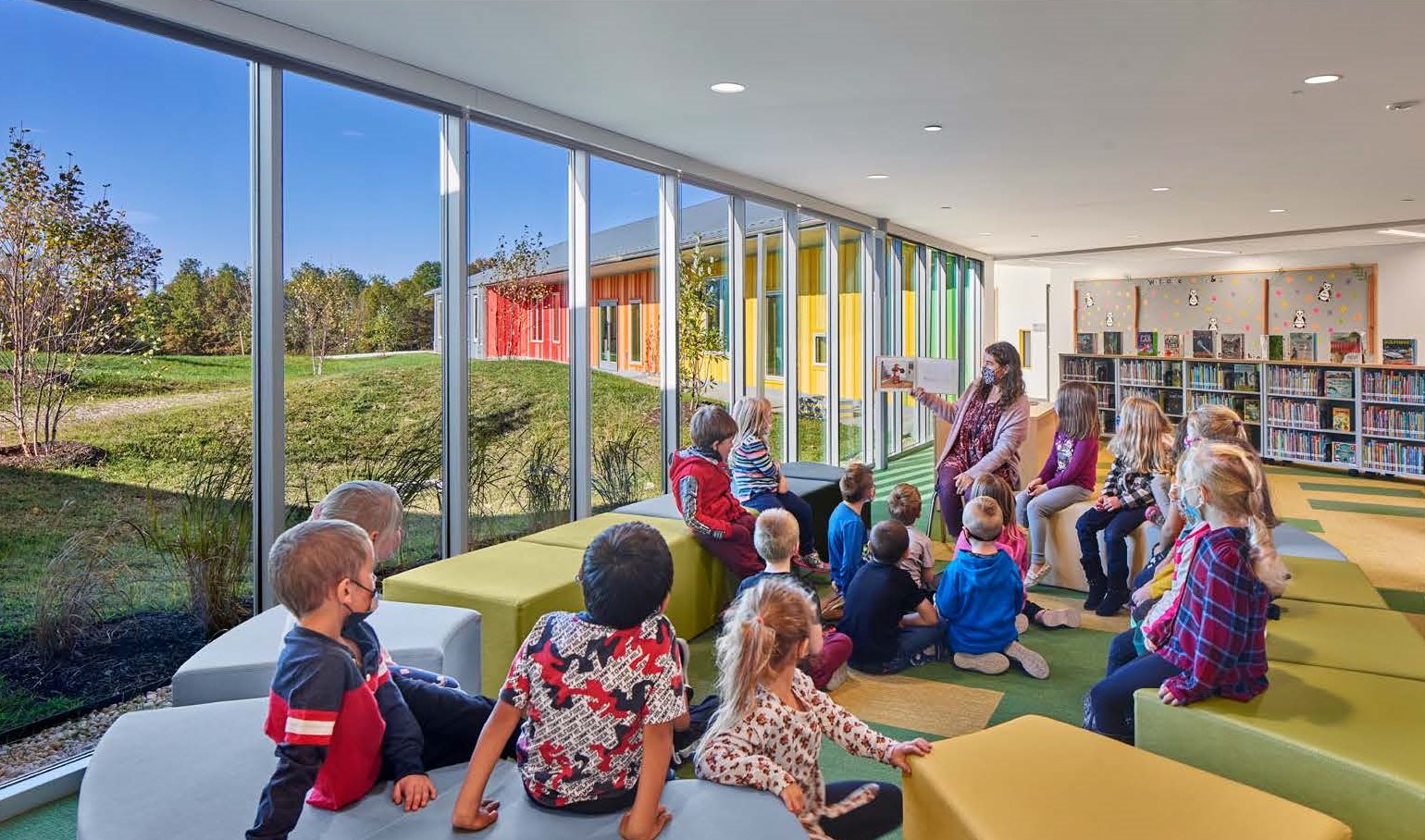Academic Curriculum
The Gettysburg Montessori Charter curriculum is well-rounded, encompassing all of the subject areas required by state standards, as well as additional areas of enrichment.
Peace
Dr. Montessori believed that if we are to ever be at peace, then we must start with the child. We encourage the children to follow three rules: take care of yourself, take care of others, and take care of the environment. Through these rules, children develop an understanding of the world around them. To nurture this new knowledge, we reach out to the community. Several times throughout the year, the children are involved in activities to show others they care.
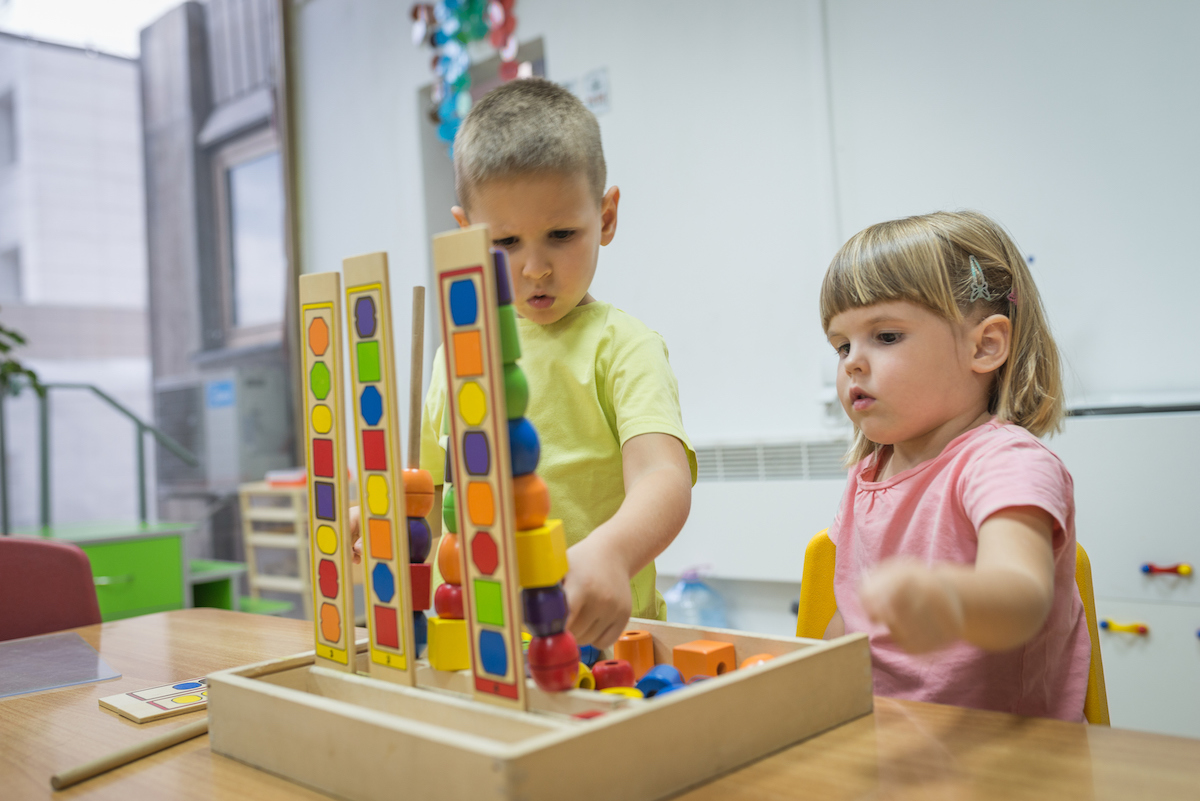
Kindergarten
Our Kindergarten experience is carefully crafted to maximize hands-on learning and research-based practices. Our team has aligned each Montessori work to applicable Pennsylvania Core Standards. We work closely as a grade level to collect data on all students’ progress in order to best support their learning. We also work with the reading and math specialists in the building to best address the needs of each child. All assessments and data that are collected are used to inform our instruction and planning. For language arts, our programs include McGraw Hill Reading Wonders, Heggerty Phonemic Awareness, Enhanced Core Reading Instruction (ECRI), Kid Writing, and Zaner-Bloser Handwriting. For math, our main program is Eureka Math and for independent practice, our students use Zearn. Our Kindergarten curriculum, therefore, implements a range of both the traditional Montessori approach and modern, research-based programs and resources to ensure that our students have access to a well-rounded, hands-on, and personalized learning experience. Social studies and science act as an important part of our ELA curriculum supported by many supplementary materials. These include physical books on various topics within the classroom, online learning resources, learning about the significance of holidays, and observing the life cycle of the butterflies.
1st and 2nd Grades
In the 1st and 2nd grade classes, there are currently three teachers who teach the core subjects (math, ELA, science, social studies, and writing.) The 1st and 2nd grade teachers strive to incorporate a healthy blend of Montessori, learning styles and PA Core Standards. The 1st and 2nd grade schedule allows for both independent and whole group lesson times. The schedule also incorporates Montessori free choice work time.
Each of the core subjects utilizes Montessori materials, as well as research-based programs to meet the PA Core Standards. All subject areas use Montessori materials to reinforce skills that are taught through core instruction time. In mathematics, the Eureka Math program is the primary tool that is utilized in all grades (K-6) throughout the building. for ELA, the McGraw-Hill Reading Wonders Program is implemented. This program also incorporates foundational writing skills. This program is used in grades K-4. The 1st and 2nd Grade is unique in its use of a blended classroom, which allows for students to be exposed to differentiated math and ELA lessons. Students are able to work in multi-age groups for science and social studies lessons and project-based activities during Montessori free choice work time.
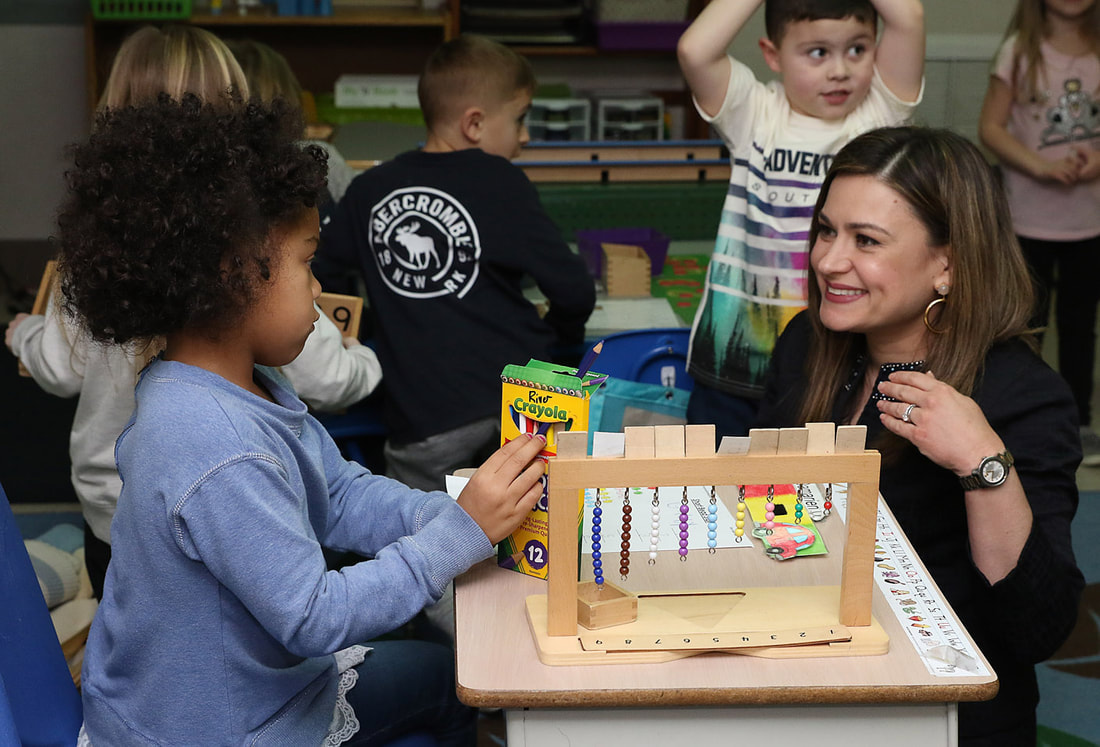
3rd and 4th Grades
In the 3rd and 4th grade classes, there are currently three teachers, each who specialize in their core subject (math, ELA and science, social studies, and writing). In this grade band, the teachers strive to incorporate a healthy blend of Montessori, learning styles and PA Core Standards. The 3rd and 4th grade schedule allows for lessons, assignments and free choice work time.
Each of the core subjects utilizes Montessori materials, as well as researched-based programs to meet the PA Core Standards. All subject areas use Montessori materials to reinforce skills to meet the PA Core Standards. All subject areas use Montessori materials to reinforce skills that are taught through core instruction time. In mathematics, the Eureka Math Program is the primary tool that is utilized, which is used in all grades (K-6) throughout the building. For ELA, the McGraw Hill Reading Wonders Program is implemented, and it incorporates science and social studies topics. This program is used in grades K-4. The 3rd and 4th grade is unique in its use of a third class, which allows for students to explore science and social studies topics through writing and research-based projects. For science, we use the PhD Science Program.
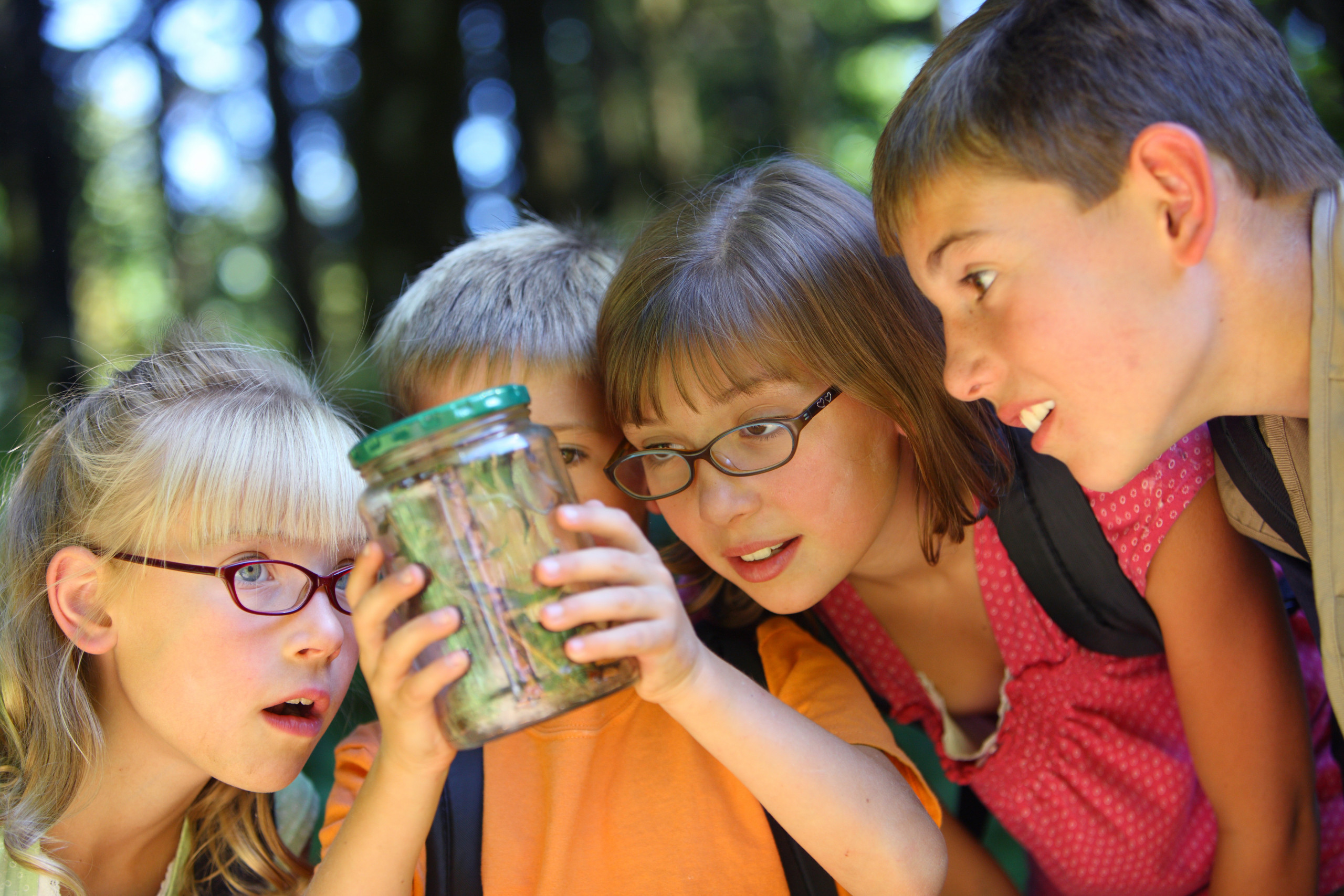
5th and 6th Grades
In the 5th and 6th grade classes, we focus on preparing our students for the future as they will soon be transitioning to their next school experience. Students switch classes for core instruction. In math, ELA, and science/social studies, we do a variety of hands-on activities while meeting PA common core standards. Throughout the year, we incorporate research through a number of projects.
In math class, students learn concepts progressing from concrete to abstract ideas through works, centers, and group explorations. Lessons are tailored to students’ needs based on the Eureka program. Novel studies are used to cover the required state standards and grade level reading skills in ELA. Science and social studies instruction is taught through hands-on experiences completed by individuals and small groups.

Music
The curriculum tools used in music at Gettysburg Montessori Charter School are based on the following units: rhythm, melody, harmony, form, tone color, dynamics, tempo and historical/cultural studies. Each grade progressing through the concepts in a comprehensive manner from K-6. Each concept has a performance assessment and increases the knowledge of the students. Music education enhances the students ability to listen to and perform a variety of styles of music. This valuable tool is key to helping the students grow in the arts.
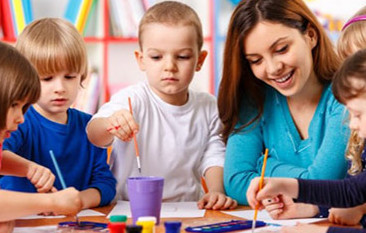
Art
Our art curriculum places a high value on higher order thinking, while focusing on the needs of all of our students. Our students are encouraged to be independent in their creations and in return, they continue to flourish with each passing day. In Kindergarten, they learn about the elements of art, such as line, shape, and color. They also put emphasis on finding these elements in the world around us. Kindergarten students experience mediums that are brand new to them. They are introduced to these new tools, pastels, clay and watercolors for example, with a brief demonstration. Students in grades 1-4 build upon what they learned in Kindergarten. Students use art elements as they delve into principles, such as balance, proportion, and rhythm. Students also learn about various cultures throughout the year. They compare and contrast the lives of Native Americans, Aborigines, Latin Americans, Chinese and more, with our own culture in the United States. Students are also able to spend more time exploring art mediums. Students in 5th and 6th grade also build on the art elements and principals. The focus is more on art history.
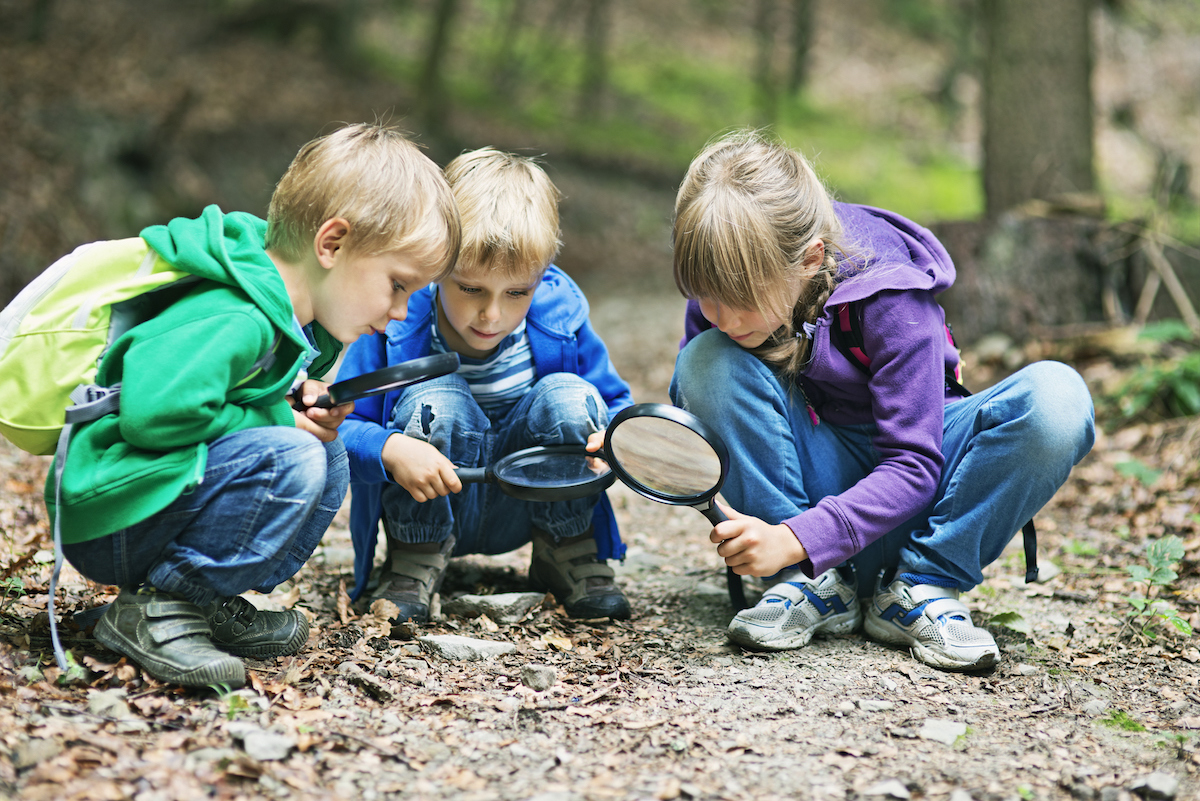
Wellness
The goal for the program is to provide knowledge to the students and staff to live healthier lives. Health lessons that align with PA Core Standards are offered weekly. Some of these units include personal hygiene, safety, nutrition, mental/emotional health, age-appropriate body system lessons and wellness tips. Your child will be provided with Physical Education instruction as well. They will learn physical literacy, sportsmanship, and teamwork in a physically and emotionally safe environment. Some of the units include fitness, dancing, gymnastics, and individual skills (kicking, throwing, jumping, striking, sliding, etc.)
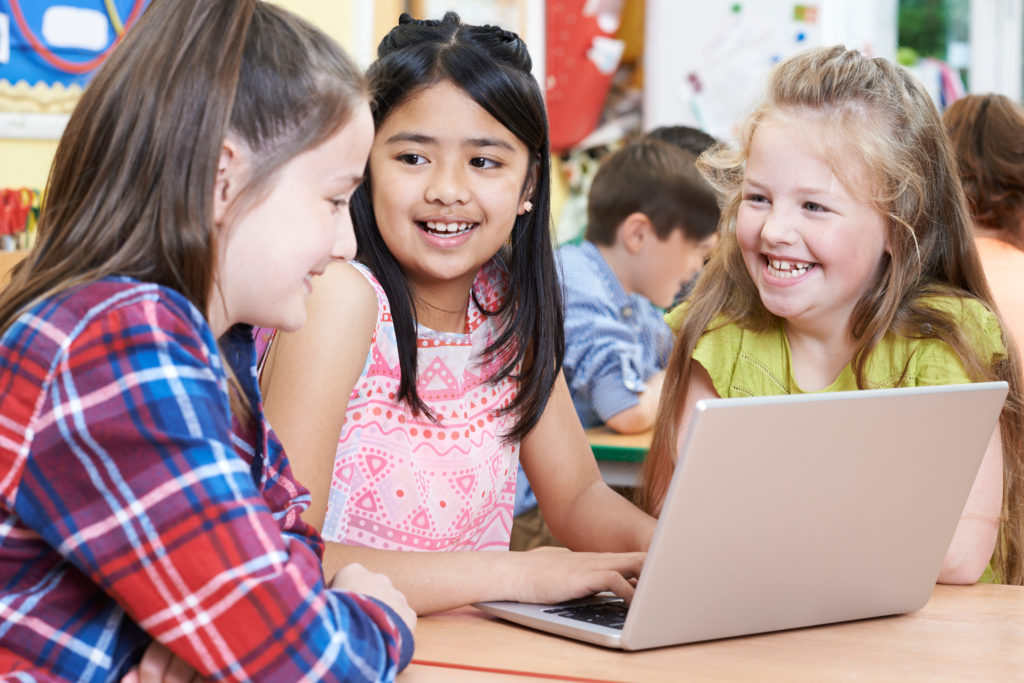 Technology
Technology
When Maria Montessori developed the Montessori Method, she put a strong emphasis on hands-on learning. At Gettysburg Montessori Charter School the integration of technology is done carefully, thoughtfully, and is always hands-on. Computers are seen as a tool, not the focus of our environment. As technology becomes more prevalent in our lives, there is value in carefully navigating the use of technology in the classroom. GMCS students learn important skills such as troubleshooting, perseverance, creativity, and how to work with others while using GMCS Technology programs. Coding programs offer students a hands-on challenge that’s full of trial and error. The coding programs used in our classrooms encourage students to think analytically and work together to create projects and solve puzzles. Our students are loaned GMCS managed and monitored Chromebooks as a toolbox for problem solving in a technologically advanced world. In the Montessori classroom, the focus is always on providing students with learning opportunities that will help them be successful in life. The level of technology integrated into the Montessori classroom is kept low to ensure that students develop the skills they need to face a variety of situations as they grow and continue to learn.
Library
The library is the central hub and heart of our school. The open design overlooks our courtyard, and provides an inviting space for students to discover the joys of reading while the over 4000 books are visually stimulating, and spark curiosity, as students pass through the hallways. Library lessons engage students as they learn about story elements, the Dewey Decimal cataloging system, and explore a large variety of genres. The library program is designed to incorporate carefully curated age-appropriate read-alouds, book discussions, and to provide a browsing time for students to peruse books that appeal to them. The main goal is to promote a lifetime love of reading.
Guidance
The Guidance program is a comprehensive program that is based on student needs, the Pa Career Standards and American School Counselor Association’s National standards as well. The Guidance program consists of several components. They include classroom lessons, small group counseling and individual counseling. The classroom lessons include topics such as identifying emotions, coping with emotions, diversity and respecting differences, and bullying prevention. Lessons also discuss goal setting, self-awareness, self-esteem, and career related lessons. The Guidance program also provides career experiences, such as Junior Achievement experiences (classroom lessons or Biztown experience) and the annual GMCS Career Fair. The small group component is based on the needs of students. Some of these groups include friendship groups, mindfulness and impulse control, anxiety small group, and self esteem groups. The individual component is based on the immediate and ongoing needs of the students.
